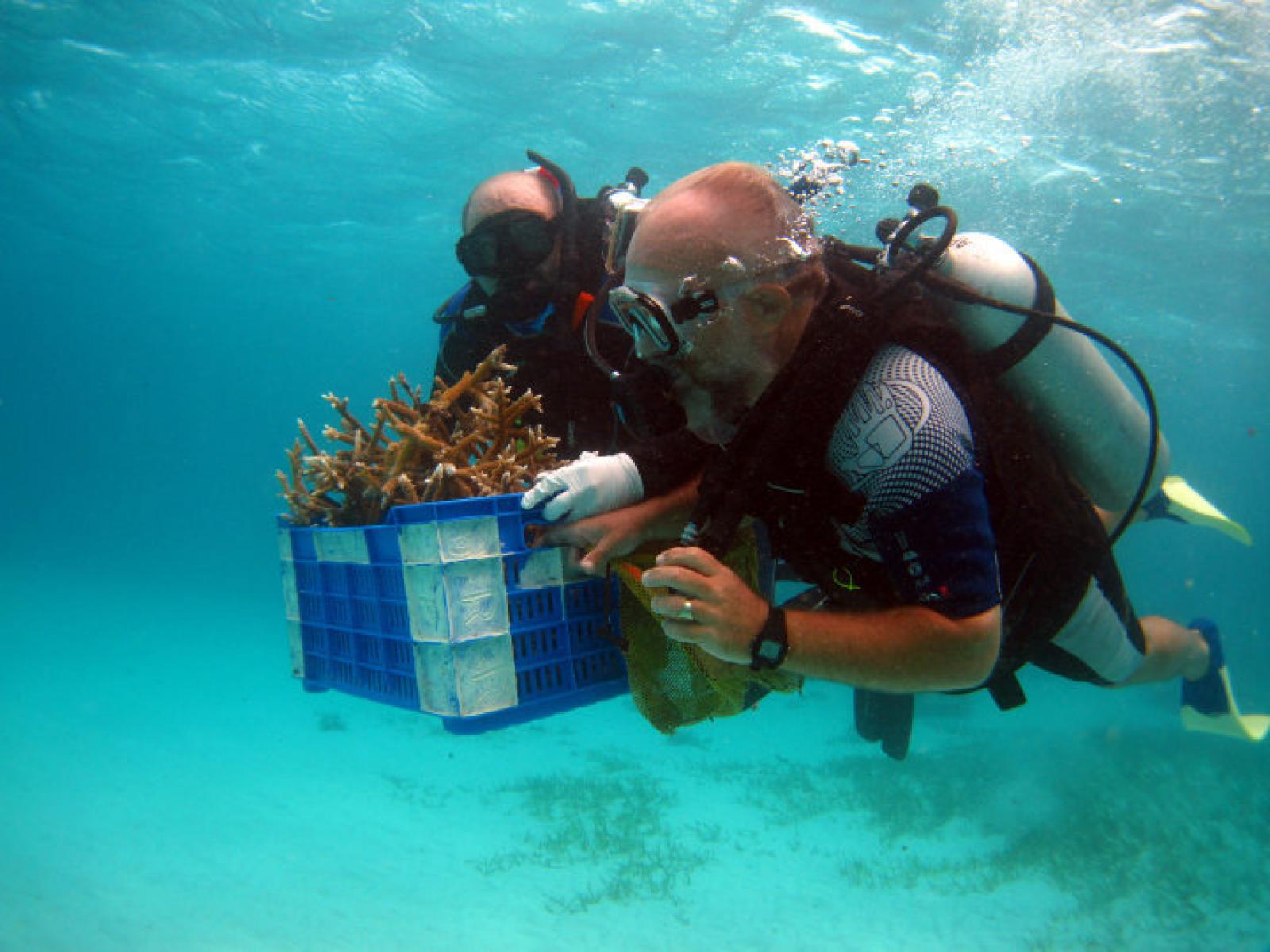An Overview Of Our Solution
- Population Impacted:
- Continent: Amerika Utara
Describe the problem
Our solution incorporates local fishermen and visiting tourists in the restoration of the endangered Staghorn coral (Acropora cervicornis), providing alternative livelihoods for fishermen, reducing fishing pressure on the reef, and creating voluntourism opportunities for tourists. With the region-wide loss of this species, the ecological, societal, and economic services that this key component of Caribbean coral reefs provides have also declined. Active restoration and propagation is the best management tool available to recover the species. The Foundation has been a leader in this field for almost seven years. Our solution seeks to maintain viable populations of Acropora in protected nurseries and transplant sites, while working to improve conditions for their long-term survival.
